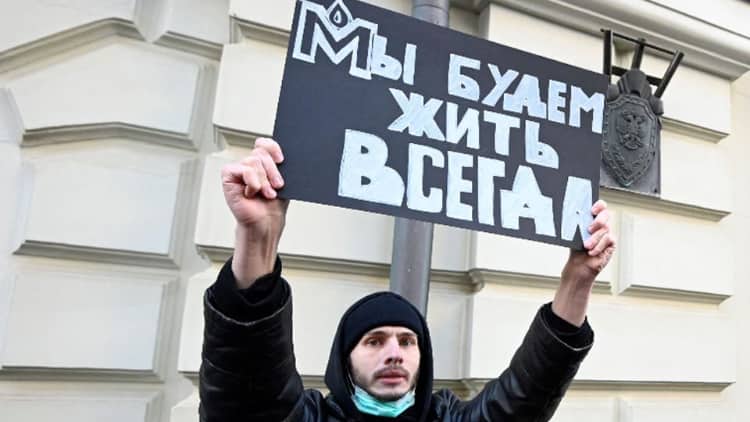The Diplomat
The Foreign Ministry yesterday expressed its “deep concern” over the Russian Supreme Court’s decision to outlaw the NGO Memorial, which for years has been investigating crimes committed by Soviet-era institutions and, more recently, has been critical of the crackdown on opposition Vladimir Putin.
In its Twitter account, the Department headed by José Manuel Albares expresses its “deep concern about the judicial decisions that liquidate @MemorialMoscow y @hrc_memorial, branches of the reference NGO on political repression in the Soviet era and winner of the Sakharov prize”.
The ministry considers the decision a “great loss for the Russian people and the defence of human rights in Russia”.
Russia’s Supreme Court on Tuesday announced the dissolution of the NGO, accepting a request from the Prosecutor’s Office based on the laws on “foreign agents” in the country. The court announced only the operative part of the decision, without disclosing the grounds for the decision. The measure affects all structures linked to Memorial.
According to the prosecutor’s accusations, it violated the regulations by not marking all its publications, including those on social media, with the ‘foreign agent’ label required by law.
Prosecutors further accused the NGO of tolerating terrorism and extremism, and Putin claimed that they had defended organisations that Russia considers extremist and terrorist and that their list of victims of political repression included Nazi collaborators.
Founded in 1989, Memorial has focused on documenting the repressions carried out by Soviet security forces, including the KGB, of which Vladimir Putin was an agent and which he headed after the end of the USSR when it was transformed into the FSB.
Memorial was set up by leading dissidents in the last years of the Soviet Union and, in addition to investigating Soviet-era crimes, especially during Stalinism, has more recently been highly critical of the repression of opposition leaders under Putin’s rule.
Lawyer Maria Eismont called the court decision “illegal” and “unfounded” and announced that she would appeal.
The Secretary General of Amnesty International, Agnès Callamard, called on Moscow not to close the NGO and stressed that this would be “an irreparable loss” for the country and for the rest of the world. She recalled that Memorial “monitors and exposes human rights violations, campaigns on behalf of victims and defends them in court”. “It monitors politically motivated persecution,” Callamard added.
Already in November, when the request for outlawing made by the Prosecutor’s Office became known, the Office of the UN High Commissioner for Human Rights expressed its “concern” and stated that the authorities use the designation of “foreign agent” to “label those they consider to be foreign-funded organisations engaged in ‘political activities'”.







